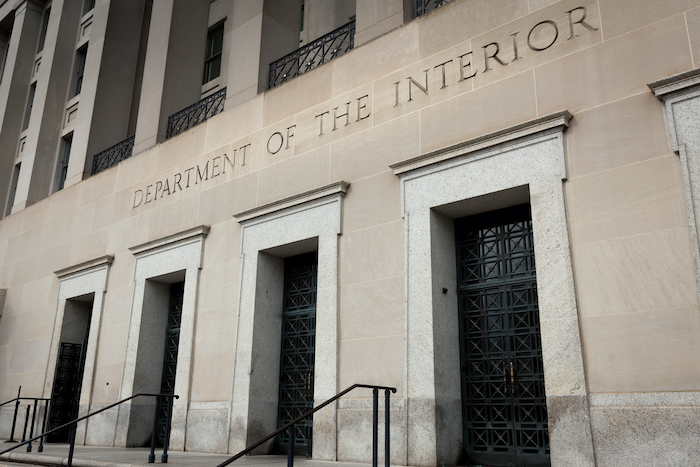
- Details
- By Elyse Wild
After a decade-long fight for justice, U.S. District Court in Montana has ruled in favor of a Native American woman who was raped by a federal law enforcement officer on the Northern Cheyenne Reservation.
The ruling, issued on Feb. 25, 2025, orders the U.S. to pay defendant L.B. $1.6 million in damages for the suffering she endured at the hands of Bureau of Indian Affairs (BIA) Officer Dana Bullcoming. The decision follows a one-day bench trial on Feb. 4 in Billings, Mont.
[Editor's Note: Due to the sensitive nature of this case. the identity of the defendent will remain anonymous. To ensure her anonymity, she is referred to as L.B. in this article.]
In its ruling, the court pointed to a history of widespread sexual violence Native American women face under BIA law enforcement.
“This case shines a light on the realities of being a Native American woman living on a reservation policed by the BIA,” the court stated.
“Officer Bullcoming’s sexual assault of L.B. was not an isolated incident of sexual assault despite BIA policies to the contrary.”
The court held the federal government liable for providing the officer with the power and opportunity to commit the crime.
L.B. has drawn widespread support from Native rights organizations.
“We applaud L.B. for her incredible bravery and perseverance,” Lucy Simpson, Executive Director of the National Indigenous Women’s Resource Center, said in a statement. “No Native woman should have to fight this hard in court for justice. Her victory sends a clear message—the United States can no longer ignore the reality that its BIA officers are perpetrating sexual violence against Native women. This must end.”
J. Garrett Renville, Chairman of the Coalition of Large Tribes and Sisseton Wahpeton Oyate, echoed Simpson’s sentiments, emphasizing the broader implications for public safety on reservations. “When federal law enforcement responds to our calls for help by sexually assaulting our women, that just means our women and our families will stop calling law enforcement for help—and they have. The system is broken, and the only way the federal government can fix it is to start taking responsibility for the actions of their own officers.”
L.B.’s legal battle has been hard-fought. Last summer, the Ninth Circuit Court of Appeals reversed a lower court’s decision to dismiss her lawsuit under the Federal Tort Claims Act, allowing the case to proceed to trial. The Coalition of Large Tribes and the National Indigenous Women’s Resource Center filed a joint amicus brief in support of her appeal.
Attorney Mary Kathryn Nagle, who represented NIWRC, criticized the federal government’s handling of the case.
“We were appalled that the Department of Justice, under Attorney General Merrick Garland’s leadership, continued for years to fight L.B. in her pursuit of justice,” Nagle said. “Thankfully, L.B.’s journey for justice has finally paid off—but we must ensure no one else is forced to suffer as she has.”
Advocates are now calling on Congress and the Trump administration to take immediate action to address BIA policing failures and restore full criminal jurisdiction to Tribal Nations. The ruling underscores longstanding concerns about the lack of accountability for federal officers on Native lands and the urgent need for systemic reform.
More Stories Like This
Native News Weekly (August 25, 2024): D.C. BriefsUS Presidents in Their Own Words Concerning American Indians
Tunica-Biloxi Cultural Leader John D. Barbry Walks On
Next on Native Bidaské: Federal ICE Activity in Minneapolis: Ruth Buffalo’s Perspective
What does ‘time immemorial’ really mean?
Help us defend tribal sovereignty.
At Native News Online, our mission is rooted in telling the stories that strengthen sovereignty and uplift Indigenous voices — not just at year’s end, but every single day.
Because of your generosity last year, we were able to keep our reporters on the ground in tribal communities, at national gatherings and in the halls of Congress — covering the issues that matter most to Indian Country: sovereignty, culture, education, health and economic opportunity.
That support sustained us through a tough year in 2025. Now, as we look to the year ahead, we need your help right now to ensure warrior journalism remains strong — reporting that defends tribal sovereignty, amplifies Native truth, and holds power accountable.
 The stakes couldn't be higher. Your support keeps Native voices heard, Native stories told and Native sovereignty defended.
The stakes couldn't be higher. Your support keeps Native voices heard, Native stories told and Native sovereignty defended.
Stand with Warrior Journalism today.
Levi Rickert (Potawatomi), Editor & Publisher


